César Alierta (Zaragoza, May 5, 1945) died this Wednesday in Zaragoza. Alierta was one of the last great businessmen left from the Transition, those who led the frenetic stage of the privatizations of public companies such as Tabacalera and Telefónica, which he successively presided over.
He was forged in private business, particularly at Banco Urquijo, although he began to shine professionally as a founding partner of the investment company Beta Capital, from which he undertook million-dollar operations, such as entering the capital of the KIO group, in which he was his greatest and most profitable passion of playing the Stock Market.
His rise to business fame came when in 2000, after his time at Tabacalera (1996-2000), Rodrigo Rato, then Minister of Economy in the Government of José María Aznar, chose him to turn around Telefónica, scandalized by the direction it had taken. was taking over the company with the singular management of Juan Villalonga, who was on the verge of bankrupting it with ruinous operations such as the purchase of Lycos or the frustrated merger with the tiny Dutch operator KPN.
Without detracting from his professionalism in management, Alierta always took care of good relations with political power. In the more than three decades that he held the presidency of the telecommunications operator, he lived with three presidents of the Government (José María Aznar, José Luis Rodríguez Zapatero and Mariano Rajoy) and despite the frequent pressures directed from that area, he was never questioned in supposed.
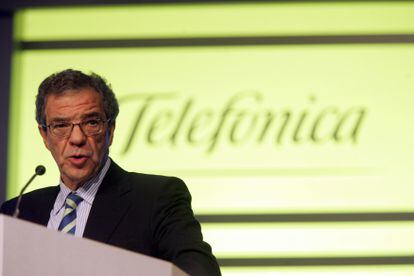
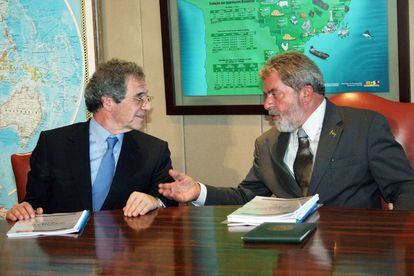
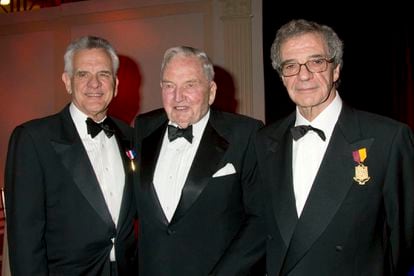
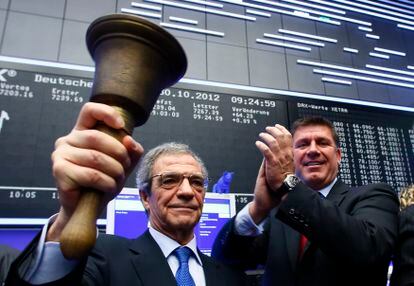
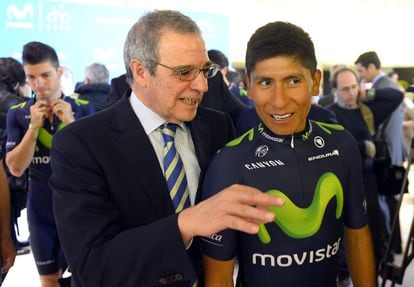

This ability to get along with power earned him a lot of criticism, due to the numerous signings he made of managers who came from the world of politics such as Eduardo Zaplana, Rodrigo Rato, Narcís Serra or Iñaki Urdangarín, among others, and whose professional work in the company, if there was one, is more than debatable. To his credit, Alierta never renounced his friends, like Rato, his benefactor and political godfather, with whom he even shared business (a hotel in Berlin), and was one of the few who visited him in the Soto del Real prison.
A shadow that weighs on his biography as a manager was the conviction in 2009 for a crime of abuse of privileged information that he committed when he ran the Tabacalera company, then in public hands, although the Supreme Court would acquit him two years later due to the statute of limitations of the crime. Alierta was tried for a transaction of purchase and sale of Tabacalera shares that he carried out in 1997 through his nephew, Luis Javier Placer, and in which he took advantage of the knowledge he had as president of the company about the purchase of the American Havatampa. When the operation was closed and made public, the shares appreciated and Alierta sold his securities with a capital gain of 1.8 million euros.
At Telefónica, Alierta's management was very personal, and he did not hesitate to turn the management organization chart around several times when he was not satisfied with the group's trajectory. He chose José María Álvarez-Pallete as his dolphin (at Tabacalera he had appointed Pablo Isla, later CEO of Inditex), and in April 2016 he gave him the presidency of the multinational and retired to the Telefónica Foundation, after receiving a juicy compensation and pension plans for more than 50 million euros. He severed his relationship with Telefónica, first abandoning his board in 2017 and, subsequently, the presidency of the Foundation, in 2022. Since then, and given his poor health, he disappeared from the public scene to manage the fortune personal of him.
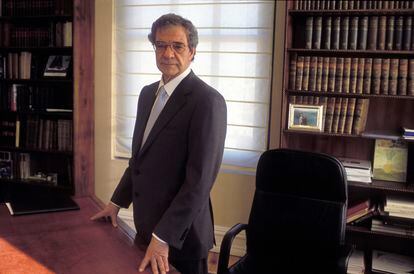
In the 16 years that he held the presidency, he knew how to convert the old analog Telefónica that was found at the beginning of this century to the digital ecosystem. He piloted the company's greatest expansion stage, not only in its natural area (Spain and Latin America) but also in mature European markets such as Germany, the United Kingdom, the Czech Republic and Ireland, although he later left some of them. To this end, it undertook the largest operations in the history of the group such as the awarding of UMTS licenses (with multimillion-dollar losses), the purchase of the Latin American subsidiaries of BellSouth, the acquisition of O2, or the takeover of total control of Vivo, the largest operator. Brazilian. “It is a bitter day for the Telefónica family. By dint of beating and loving, César leaves us, a heart wide open. Thank you very much, dear friend,” said his successor at the head of the company, Álvarez-Pallete.
Unlike the newly minted executives, Alierta fled political correctness. Despite having a Master's Degree in Business Administration from Columbia University (New York), he had a peculiar way of speaking English that he was never ashamed of because he considered that Spanish executives were much more intuitive than Anglo-Saxon executives. It is not surprising that she attacked the big figures of the Internet such as the heads of Google or Facebook, whom she accused of parasitizing Telefónica's networks and keeping customers' personal data.
Personally, Alierta was married to Ana Cristina Placer, whose death in 2015 was a hard blow from which he never recovered. Without children, he turned to his nephew Javier Placer, whom he hired to direct Telefónica's innovation area. His main passion was Real Zaragoza, a club of which he was a shareholder and a furious follower, so much so that he did not hesitate to connect in the middle of any meeting to know the minute by minute of the team if he was playing at that moment.
/cloudfront-eu-central-1.images.arcpublishing.com/prisa/3A23TSBATJBBDCC2D3KMDO65QQ.jpg)
The 2011 photograph that went viral in which Alierta was seen presenting a shoeshine boy with a 100-euro bill while he smoked a cigar on a terrace on Serrano Street in Madrid, is an icon of a type of businessman in the making. extinction, in which personality and social relationships were more important than investment bank reports when doing business. An era to which Emilio Botín, Isidoro Álvarez, José Manuel Lara and Leopoldo Rodés also belong, who, together with Alierta, fou
nded in 2011 that strange lobby called the Business Council for Competitiveness, which functioned as a kind of select CEOE, and which both He made people talk for his political opinions. With Alierta, in short, a way of understanding the company is gone that will not return.
Follow all the information Economy and Business in Facebook and xor in our weekly newsletter
The Five Day Agenda
The most important economic quotes of the day, with the keys and context to understand their scope.
RECEIVE IT IN YOUR EMAIL
#president #Telefónica #Tabacalera #César #Alierta #dies